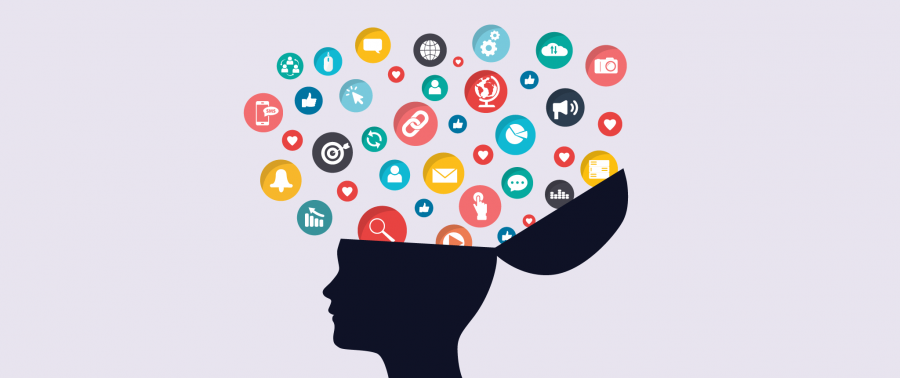In the fast-paced and competitive world of marketing, understanding consumer behaviour is key to driving sales and achieving success. By leveraging the principles of psychology, businesses can tap into the subconscious desires and motivations of their target audience. This article explores six powerful marketing psychology techniques that will not only captivate your audience but also entice them to buy your product.
Read more about Business
-
Use the Power of Social Proof
Social proof is a psychological phenomenon where people rely on the actions and decisions of others to guide their own behaviour. When potential customers see that others have purchased and enjoyed your product, they are more likely to trust and follow suit. Testimonials, customer reviews, and user-generated content are effective ways to showcase social proof.
To leverage social proof effectively, display genuine and relatable customer testimonials on your website and social media platforms. Encourage satisfied customers to share their experiences on their own social networks, expanding your reach and credibility. Moreover, highlight the number of customers served or products sold to further establish your product’s popularity and reliability.
-
Appeal to the Scarcity Principle
The scarcity principle relies on the fear of missing out (FOMO). When something is perceived as limited in quantity or time, people tend to desire it more intensely. By creating a sense of urgency or exclusivity, you can persuade your audience to make a purchase sooner rather than later.
Implement scarcity by offering limited-time promotions, flash sales, or exclusive discounts for a specific group of customers. Display countdown timers to indicate when the offer will expire, pushing potential buyers to take action quickly. However, it is essential to use scarcity ethically and avoid misleading tactics, as trust is paramount in building lasting customer relationships.
-
Employ the Power of Storytelling
Storytelling is a potent marketing tool that taps into the emotional side of the human brain. People remember stories far better than they do facts and figures. By crafting a compelling narrative around your product or brand, you can evoke emotions that resonate with your audience, leading to a deeper connection.
When telling your brand story, focus on the values and mission behind your product. Share anecdotes that highlight how your product has positively impacted real customers’ lives. Use visuals and language that evoke emotions such as joy, empathy, or inspiration. As consumers relate to your story, they are more likely to form a meaningful bond with your brand and become loyal customers.
-
Implement the Principle of Reciprocity
Reciprocity is a psychological concept that revolves around the idea of giving and receiving. When someone does something kind for us, we feel obliged to reciprocate the favour. In marketing, this principle can be leveraged to encourage customers to make a purchase.
Sign up for the Connect Nigeria daily newsletter
Offering freebies, samples, or valuable content creates a sense of indebtedness, prompting customers to feel more inclined to make a purchase in return. For example, a software company can offer a free trial of their product, allowing users to experience its benefits before committing to a purchase. This gesture fosters goodwill and increases the likelihood of converting prospects into paying customers.
-
Leverage the Power of Authority
The principle of authority suggests that people tend to follow and trust figures of authority or expertise. By positioning your brand or product as an authority in your industry, you can influence consumers’ perceptions and decisions positively.
Establish credibility by showcasing endorsements from experts or influencers within your niche. Create content that demonstrates your expertise, such as blog posts, whitepapers, or videos that provide valuable insights. By positioning yourself as an authority, you instil confidence in your audience and elevate your product’s perceived value.
-
Trigger the Power of Cognitive Biases
Cognitive biases are inherent thought patterns that influence decision-making. By understanding and utilizing these biases, you can nudge your audience toward purchasing your product.
For instance, the “anchoring bias” occurs when people rely heavily on the first piece of information they receive when making decisions. Use this bias to your advantage by initially presenting a higher-priced option for your product, making the standard price seem more reasonable in comparison.
Register to attend the CN Business Mixer
The “bandwagon effect” refers to the tendency of individuals to follow the actions of the majority. Showcase the popularity of your product by displaying the number of customers who have purchased it or by emphasizing it as a bestseller. This approach creates a sense of trust and prompts others to join the trend.
Conclusion
Marketing psychology is a powerful tool that can significantly impact your sales and audience engagement. By leveraging social proof, scarcity, storytelling, reciprocity, authority, and cognitive biases, you can strategically influence consumer behaviour and entice your audience to buy your product.
However, it is crucial to use these techniques ethically and transparently, prioritizing the needs and interests of your customers. Building trust and maintaining a positive brand reputation is essential for long-term success in the market. By understanding the psychological drivers of consumer behaviour, you can create effective marketing campaigns that resonate with your audience and drive meaningful results for your business.
Featured Image Source: Clever Tap
Got a suggestion? Contact us: [email protected]


